Plenary Speakers
Han Ding
Professor
Huazhong University of Science and Technology,China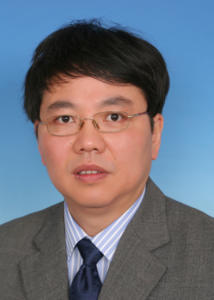
Title: The Tri-Co (Coexisting-Cooperative-Cognitive) Robots
Abstract: Tri-Co Robots (Coexisting-Cooperative-Cognitive Robots) are those that can naturally interact and collaborate with the environment, including humans as well as other robots, and adapt to new situations. This will all be achieved through state-of-the-art machine learning, control and planning algorithms. Key characteristics of Tri-Co Robots are: plastic and dexterity, multi-modal perception, and working autonomously and collaboratively. This talk will introduce the current research activities of robotics in China, especially the Tri-Robot Research Plan of NSFC (National Natural Science Foundation of China). It will discuss the primary scientific challenges and key scientific problems of the plan, mainly focusing on mechanism, perception and control. The talk will also forecast China’s expected breakthroughs and goals in Tri-Co robot research. Finally, the talk will present recent research results of our group and discuss current and future challenges.
Biography: Prof. Han Ding received his Ph.D. degree in Mechatronics from Huazhong University of Science & Technology in 1989. Supported by the Alexander von Humboldt Foundation, he worked at University of Stuttgart, Germany in 1993. He obtained the National Distinguished Youth Scientific Fund in 1997 and was awarded the “Cheung Kong” Chair Professor at Shanghai Jiao Tong University in 2001. He was elected a member of Chinese Academy of Sciences in 2013. Prof. Ding has long dedicated himself to research in the field of robotics and digital manufacturing, and has successfully combined both technologies. He published three academic books and more than 300 journal papers, and licensed more than 60 patents in China. Prof. Ding acted as an Associate Editor (2003-2007) and as an Editor (2011-) of IEEE Transactions on Automation Science and Engineering. He was also a Technical Editor of IEEE/ASME Trans. on Mechatronics from 2010 to 2014. Currently, he is a Senior Editor of IEEE Robotics and Automation Letters. He is also the Co-founder of the IEEE International Conference on Intelligent Robotics and Applications.
Toshio Fukuda
Professor
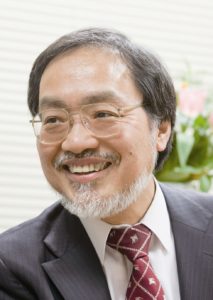 Beijing Institute of Technology,China
Beijing Institute of Technology,China
Title:Mutli-Scale Robotic System— From large scale cellular robot to small scale robots
Abstract: This lecture is an overview of the Multi-scale robotics, based on the Cellular Robotics System, which is the basic concept of the emergence of intelligence in the multi-scale way from Cell Level to the Organizational Level, proposed more than 30 years ago. It consists of many elements how the system can be structured from the individual to the group/society levels in analogy with the biological system. It covers with the wide range of challenging topics: Then I mainly focus on medical robots and bio cell manipulation and cell assembly and refer to applied areas for the future hybrid cyborg and bionic system to improve the quality of life of human.
Biography: Toshio Fukuda graduated from Waseda University, Tokyo, Japan in 1971 and received the Master of Engineering degree and the Doctor of Engineering degree both from the University of Tokyo, in 1973 and 1977, respectively. He studied at Graduate School of Yale University in 1973-1975. He joined the National Mechanical Engineering Laboratory in Japan in 1977, the Science University of Tokyo in 1982, and then joined Department of Mechanical Engineering, Nagoya University, Japan in 1989. He worked at University of Stuttgart, as Humboldt Fellow in 1979-1981.
He is Professor Emeritus of Nagoya University. Department of Micro and Nano-Systems Engineering and Professor of Meijo University as well as Beijing Institute of Technology.
He is mainly engaging in the research fields of intelligent robotic system, micro and nano robotics, bio-robotic system, and technical diagnosis and error recovery system.
He was the President of IEEE Robotics and Automation Society (1998-1999), Director of the IEEE Division X, Systems and Control (2001-2002), the Founding President of IEEE Nanotechnology Council (2002-2005), Region 10 Director (2013-2014) and Director of Division X, Systems and Control (2017-2018). He was Editor-in-Chief of IEEE/ASME Trans. Mechatronics (2000-2002).
He was the Founding General Chair of IEEE International Conference on Intelligent Robots and Systems (IROS) held in Tokyo (1988). He was Founding Chair of the IEEE Workshop on Advanced Robotics Technology and Social Impacts (ARSO, 2005), Founding Chair of the IEEE Workshop on System Integration International (SII, 2008), Founding Chair of the International Symposium on Micro-Nano Mechatronics and Human Science (MHS, 1990-2012).
He has received many awards such as IEEE Eugene Mittelmann Achievement Award (1997), IEEE Third Millennium Medal (2000) , Humboldt Research Prize (2003), IEEE Robotics and Automation Pioneer Award (2004), IEEE Transaction Automation Science and Engineering Googol Best New Application Paper Award (2007), George Saridis Leadership Award in Robotics and Automation (2009), IEEE Robotics and Automation Technical Field Award (2010). He received the IROS Harashima Award for Innovative Technologies (2011), Friendship Award of Liaoning Province PR China (2012), Friendship Award from Chinese Government (2014), JSME Achievement Award (2015), IROS Distinguished Service Award (2015) and Honor of Medal with the Purple Ribbon from Japanese Government (2015). Award from Automation Foundation (2016).
IEEE Fellow (1995). SICE Fellow (1995). JSME Fellow (2002), RSJ Fellow (2004), VRSJ Fellow (2011) and member of Science Council of Japan (2008-2014 ), Academy of Engineering of Japan (2013-), and Foreign member of Chinese Academy of Sciences (2017).
George Chiu
Professor
School of Mechanical Engineering
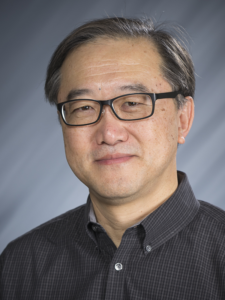
Purdue University,USA
Title:Making of a Microresonator-based Sensor –Dynamics, Feedback and Functional Printing
Abstract: Vibration-based sensing using microelectromechanical systems (MEMS) have shown promise in mass detection across numerous application spaces. To date, many such vibration-based sensing modalities have relied upon monitoring shifts in the natural frequency to detect structural changes which are attributable to the chemical or biological species that are being detected. This approach often carries significant signal processing expense, due to the presence of electronics such as precision phase locked loops or lock-in amplifiers, when high sensitivities are required. Bifurcation-based sensing modalities, in contrast, can produce changes in response amplitude with high sensitivity to structural change. However, low fabrication yield is a key consideration. In this talk, we will introduce the design and implementation of a tunable, Duffing-like electronic resonator. It was realized via nonlinear feedback electronics on a quartz crystal tuning fork as the device platform. The system in this manifestation used collocated sensing and actuation, along with readily available electronic components, to realize the desired behavior, creating a nonlinear resonator from a linear one. A novel method, leveraging inkjet technology, is used to functionalize the sensors and characterizes the spatial mass sensitivity of microresonators. Experimental validations will also be presented.
Biography: George T.-C. Chiu (邱祚之) is the Assistant Dean for Global Engineering Programs and Partnerships in the College of Engineering and a Professor in the School of Mechanical Engineering with courtesy appointments in the School of Electrical and Computer Engineering and the Department of Psychological Sciences at Purdue University. Dr. Chiu received the B.S. degree in Mechanical Engineering from the National Taiwan University in 1985 and the M.S. and Ph.D. degrees from the University of California at Berkeley, in 1990 and 1994, respectively. Before joining Purdue, he worked for the Hewlett-Packard Company, designing inkjet printer and multi-function devices. Between 2011 and 2014, he served as the Program Director for the Control Systems Program of the US National Science Foundation. Dr. Chiu’s current research interests are mechatronics and dynamic systems and control with applications to digital printing and imaging systems, digital fabrications, human motor control and robotics, motion and vibration perception and control. He received the 2012 NSF Director’s Collaboration Award, the 2010 IEEE Transactions on Control System Technology Outstanding Paper Award and the Purdue University College of Engineering 2016 Faculty Engagement/Service Excellence Award and 2010 Team Excellence Award. Professor Chiu is the current Editor-in-Chief for the IEEE/ASME Transactions on Mechatronics. He served on the Executive Committee of the ASME Dynamical Systems and Control Division from 2007 to 2015 and was the Chair of the division between 2013-14. He is a Fellow of ASME and the Society for Imaging Science and Technology (IS&T) and a senior member of IEEE.
Jianwei Zhang
Professor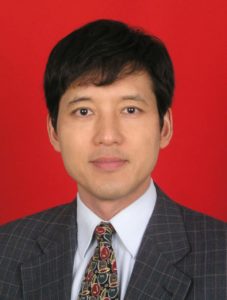
Institute TAMS (Technical Aspects of Multimodal Systems)
Department of Informatics
University of Hamburg,Germany
Title: Cross-modal learning of intelligent robot systems
Abstract: It is a long-term goal of AI research to understand the complex neural, cognitive and computational mechanisms of cross-modal learning and to use this understanding for (1) enhancing human performance, and (2) improving the performance of artificial systems. The term cross-modal learning refers to the synergistic synthesis of information from multiple sensory modalities such that the learning that occurs within any individual sensory modality can be enhanced with information from one or more other modalities. Cross-modal learning is crucial for human understanding of the world, and examples are ubiquitous, such as: learning to grasp and manipulate objects; learning to walk; learning to read and write; learning to understand language and its referents; etc. In all these examples, visual, auditory, somatosensory or other modalities have to be integrated, and learning must be cross-modal. In fact, the broad range of acquired human skills are cross-modal, and many of the most advanced human capabilities, such as those involved in social cognition, require learning from the richest combinations of cross-modal information.In a dynamic and changing world, a robust and effective robot system must have adaptive behaviors, incrementally learnable skills and a high-level conceptual understanding of the world it inhabits, as well as planning capabilities for autonomous operations. Future intelligent robot systems will benefit from the recent research on neurocognitive models in processing cross-modal data, exploiting synergy, integrating high-level knowledge and learning, etc. I will first introduce cross-modal learning issues of intelligent robots. Then I will present our investigation and experiments on synergy technique which uses fewer parameters to govern the high DOF of robot movement. The third part of my talk will demonstrate how an intelligent system like a robot can evolve its model as a result of learning from experiences; and how such a model allows a robot to better understand new situations by integration of knowledge, planning and learning.
Biography: Jianwei Zhang is professor and director of TAMS, Department of Informatics, University of Hamburg, Germany. He received both his Bachelor of Engineering (1986, with distinction) and Master of Engineering (1989) at the Department of Computer Science of Tsinghua University, Beijing, China, his PhD (1994) at the Institute of Real-Time Computer Systems and Robotics, Department of Computer Science, University of Karlsruhe, Germany, and Habilitation (2000) at the Faculty of Technology, University of Bielefeld, Germany. His research interests are sensor fusion, intelligent robotics and multimodal machine learning, cognitive computing of Industry4.0, etc. In these areas he has published about 300 journal and conference papers, technical reports, four book chapters and three research monographs. He holds 40+ patents on intelligent components and systems. He is the coordinator of the DFG/NSFC Transregional Collaborative Research Centre SFB/TRR169 “Crossmodal Learning” and several EU robotics projects. He has received multiple best paper awards. He is the General Chairs of IEEE MFI 2012, IEEE/RSJ IROS 2015, and the International Symposium of Human-Centered Robotics and Systems 2018. Jianwei Zhang is life-long Academician of Academy of Sciences in Hamburg.
François Chaumette
Rainbow group
Inria, Univ Rennes, CNRS, IRISA
Rennes, France
Web: http://team.inria.fr/rainbow
Title:Geometric and end-to-end visual servoing
Abstract:As for humans and most animals, vision is a crucial sense for a robot to interact within its environment. Vision-based robot motion control, also named visual servoing, is a general approach to close the perception-action loop. It has given rise to an incredible amount of research and successful applications from the creation of the fields of robotics and computer vision several decades ago. The aim of this talk is to provide a comprehensive state of the art on the basic concepts, methodologies, and applications. In a first part, the traditional approach based on geometric visual features, such as image points, image moments, or camera-object pose will be described. The more recent end-to-end approach that directly uses the image content without any image tracking nor matching process will be also considered, providing a link to CNN modern methods that use the same inputs.
Biography:François Chaumette, IEEE Fellow, is an Inria senior research scientist at IRISA in Rennes, France, where he lead the Lagadic group since 2004. He received the M.Sc. (eng.) degree from “Ecole Nationale Supérieure de Mécanique”, Nantes, in 1987 and a Ph.D. in computer science from the University of Rennes in 1990. His research interests lie in the area of robot vision, mainly visual servoing and active perception. He has published over 250 journal or conference papers, with the 2002 Best IEEE Transactions on Robotics and Automation Paper Award. He has served on the technical program committee of the main conferences in computer vision (ECCV, CVPR, ICCV) and robotics (ICRA, IROS, RSS). He has been Associate Editor of the IEEE Transactions on Robotics (2001-2005) and is currently in the Editorial Board of the Int. Journal of Robotics Research, Funding Senior Editor of the IEEE Robotics and Automation Letters, and Senior Editor of the IEEE Transactions on Robotics. He is currently an elected member of the IEEE Robotics and Automation Administrative Committee.
Youfu Li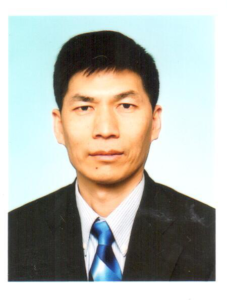
Professor
Department of Mechanical Engineering
City University of Hong Kong, Kowloon, Hong Kong
Title:Towards More Flexible Calibrations for Visual sensing and Tracking
Abstract:Visual sensing is important to many engineering applications including tracking for robotics. In this talk, I will present our research in visual sensing and tracking focusing on the issues in the calibration. For robotic applications, visual sensing in 3D is often needed, but the calibration remains tedious and inflexible with traditional approach. To this end, we have investigated the relevant issues for different visual sensing systems. A flexible calibration method desires the vision system parameters to be recalibrated automatically or with less operator interference whenever the configuration of the system is changed, but practically this is often hard to achieve. Various attempts were made in our previous works to enhance the flexibility in the visual sensing calibration. I will present some them including the work on omni-directional visual sensing and tracking. Another case to present is that of gaze tracking where the issues in the parallax errors and the tedious calibration procedures are addressed with our new calibration method developed.
Biography:You-Fu Li received the B.S. and M.S. degrees in electrical engineering from Harbin Institute of Technology, China. He obtained the PhD degree in robotics from the Department of Engineering Science, University of Oxford in 1993. From 1993 to 1995 he was a research staff in the Department of Computer Science at the University of Wales, Aberystwyth, UK. He joined City University of Hong Kong in 1995 and is currently a professor in the Department of Mechanical Engineering. His research interests include robot sensing, robot vision, and visual tracking. In these areas, he has received many awards including a Second Prize of Natural Science Research Award by the Ministry of Education of China, for the work on “Active 3D Computer Vision”, and IEEE Sensors Journal Best Paper Award by IEEE Sensors Council. He has served as an Associate Editor for IEEE Transactions on Automation Science and Engineering (T-ASE), Associate Editor for IEEE Robotics and Automation Magazine (RAM), Editor for CEB, IEEE International Conference on Robotics and Automation (ICRA), and Guest Editor for IEEE Robotics and Automation Magazine (RAM).
Krzysztof Kozlowski
Professor
Institute of Control and Robotics 
Poznan University of Technology,Poland
Title:Leader-follower formation algorithms with collision avoidance for two-wheeled mobile robots
Abstract:Multiple mobile robot control became intensively investigated area of robotics in the last few years. This is due to a wide range of applications and the availability of technologies supporting the development of mobile robotics. Designing effective control algorithms remains currently the most challenging problem.
Regardless of the main purpose of the application, one of the basic problems is formation motion control. There are three classes of solutions: virtual structure, behavioral approach and leader-following methods. In this paper a review of leader-follower methods for the multiple differentially driven mobile platforms is presented. The goal is to tracking desired trajectory by the formation. In this approach only one robot called leader knows the desired trajectory. The others form a queue. For each of them control problem reduces to the task of maintaining a constant (predefined) distance from the predecessor.
Most of the algorithms known from the literature assume that initial configuration of robots ensures that collisions cannot occur. In presented methods collision avoidance behavior is part of the algorithm. Initial configurations may be ‘difficult’, that minds that during the process of forming the queue robots can get close to each other, but the collision will not occur, which is guaranteed by the algorithm.
In the paper the proof of stability of the closed-loop system is given in presence of obstacles for different kind of control algorithms. The proposed algorithms are new and are supported by extensive numerical simulations.
Biography:Professor K. Kozlowski received the M.Sc. degree in electrical engineering from Poznan University of Technology (PUT), Poland, and the Ph.D. degree in control engineering from PUT in 1979, where he currently holds full professor position in robotics and automation. In 1993, he was a Fulbright scholar with Jet Propulsion Laboratory, Pasadena, USA. He founded and serves as a chairman of a new Institute of Automation and Control established on May 1, 2017 at Poznan University of Technology.
He teaches and conducts research in the area of modeling and control of industrial and mobile robots. His research interests include multi-agent systems, identification and various robotics applications. His research publications include more than 140 conference papers and more than 65 papers published in national and international journals. He is an author of the book titled Modelling and Identification in Robotics (Springer-Verlag, 1998).
He was an Associate Editor for the IEEE Transactions on Control Systems Technology (1999-2008), for the IEEE Robotics and Automation Magazine (1998-2002), for the Journal of Intelligent and Robotic Systems (2005-2010) and for the International Journal of Applied Mathematics and Computer Science, (1999-2017), IEEE Conference Editorial Board, Conference on Decision and Control (CDC) and American Control Conference (ACC) since 1999 till now. He was the member of the Administrative Committee, IEEE Robotics and Automation Society 2000-2002, 2004-2005 and the member of the Board of Directors, IEEE Control Systems Society, 2003-2004. He serves as the chair of the IEEE Robotics and Automation Chapter, Polish Section, 2000-2008 and 2014-2019.
He conducted 39 different research scientific projects as supervisor (26) and as principal investigator (13) granted by national research institutions and 2 international research agencies.
Keynote speakers
Guoqiang Hu 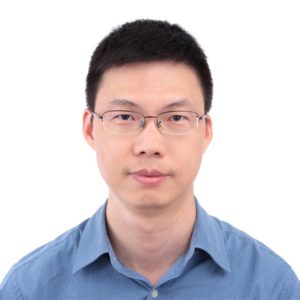
Associate Professor
School of Electrical & Electronic Engineering
Nanyang Technological University,Singapore
Title: Robust Coordination of Networked Multi-Robot Systems
Abstract: Man-made multi-robot systems have been advancing apace with the help of high-performance hardware and computational technologies. Despite the high-performance computing, communication, sensing, and power devices used in these systems, their effectiveness in uncertain environments appears to still fall behind the natural systems such as a swarm of ants, a flock of birds, or a team of wolves. One of the challenges in multi-robot coordination is the lack of effective distributed algorithms and designs that enable the robots to work cooperatively and safely in uncertain environments. This talk will present some recent research results on distributed algorithms and robust control methods for multi-robot coordination. The research on this topic has a wide range of potential engineering applications, including surveillance and search, intelligent transportation, environment monitoring, unmanned exploration of dangerous areas, and deployment and scheduling of sensor networks.
Biography: Guoqiang Hu joined the School of Electrical and Electronic Engineering at Nanyang Technological University, Singapore in 2011, and is currently a tenured Associate Professor and the Director of the Centre for System Intelligence and Efficiency (EXQUISITUS). He was an Assistant Professor at Kansas State University from 2008 to 2011. He received the B.Eng. degree in Automation from University of Science and Technology of China in 2002, the M.Phil. degree in Automation and Computer-Aided Engineering from the Chinese University of Hong Kong in 2004, and the Ph.D. degree in Mechanical Engineering from University of Florida in 2007. His research interests include distributed control, optimization and games with applications to intelligent energy and robotic systems.
Dr. Hu was a recipient of the Best Paper in Automation Award in the 14th IEEE International Conference on Information and Automation, and a recipient of the Best Paper Award (Guan Zhao-Zhi Award) in the 36th Chinese Control Conference. He serves as Associate Editor for IEEE Transactions on Control Systems Technology, Technical Editor for IEEE/ASME Transactions on Mechatronics, Associate Editor for IEEE Transactions on Automation Science and Engineering, and Subject Editor for International Journal of Robust and Nonlinear Control. He serves as General Chair for ICARCV 2018, General Co-Chair for IEEE ICCA 2018, and Program Co-Chair for IEEE IECON 2020.
Yan Zhuang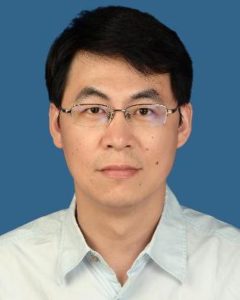
Professor
School of Control Science and Engineering
Dalian University of Technology,China
Title:Laser-Based 3D Scene Modeling and Understanding for Autonomous Robots in Large-Scale Open Environments
Abstract:Since recent advancement of computing and 3D laser scanning technologies, autonomous robots such as UGVs and UAVs are soon ready to serve us in large-scale urban scenes, natural scenes and post-disaster environments. These robots can perform unstructured scene reconstruction, semantic map building and long-term navigating autonomously in dynamic and open environments, and therefore will play an important role in our life. This talk briefly overviews the key challenges and opportunities in laser-based 3D scene modeling and understanding robotic systems towards real-world applications with UGVs and UAVs. In particular, the recent development of modeling algorithms and scene understanding frameworks for outdoor security robots, driverless car, patrol quadrotors at Dalian University of Technology are introduced, and some preliminary results are demonstrated via videos.
Biography:Yan Zhuang is a Professor in School of Control Science and Engineering at Dalian University of Technology, China, leading the Intelligent Robotics Lab (DUT Robotics Lab). His research interests include mobile robot 3D environment perception and mapping, outdoor scene understanding and machine learning in robotics. He has published over 60 papers in journals and conferences in these areas including IEEE Transactions and Journal, IEEE ICRA, IEEE IROS, and received best paper award in WCICA2006. He has been a chair or committee member for many international conferences such as IEEE ICSSE, CYBER, ROBIO and WCICA. Intelligent robotic products developed by DUT Robotics Lab won the “Excellent Product Award” of China Hi-Tech Fair in 2010, 2016 and 2017. His lab has provided 1 stack and 7 packages to ROS.org, and also published several 3D point clouds processing algorithms in Point Cloud Library (PCL). He currently serves as the member of Robotics Professional Committee of CAA and council member of Liaoning Association for Artificial intelligence.
Jing Xu 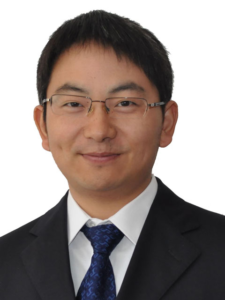
Associate professor
Lab of Robotics and Automation
Dept of Mechanical Engineering
Tsinghua University, China
Title:Intelligent Robot for Large-scale Equipment Manufacturing
Abstract: Industrial robot has achieved many successes in automotive manufacturing industry, where the robot performance depends on repeatability. However, it is still a challenge for large-scale structure in 10 priority sectors in “Made in China 2025”, where the part is always much bigger than the robot workspace. The reason is that the inevitable deformation cause by large scale and heavy weight would result in difference from CAD model. Therefore, the offline programming method from CAD model used in automotive manufacturing industry would fail. To improve robot accuracy, real-time 3D sensing, online path planning, and intelligent control methods are introduced in this talk. The proposed methods have been successfully applied in drilling, assembly, spray, and quality inspection in manufacturing industry, resulting in quality and efficiency improvement.
Biography: Jing Xu is currently an associate professor in the Department of Mechanical Engineering, Tsinghua University, China. His research focuses on 3D perception and control for industrial robot. He has been involved in several Chinese National Projects regarding quality inspection robot for specular surface, assembly robot for large-scale structure, 3D printing robot for complex shape, 3D perception for robot navigation under the support of NSFC and MOST. He has published over 100 peer-reviewed journal and conference papers, co-authored 4 book chapters, over 20 issued patents. He serves as guest editor for Journal of Sensors and as the organizing committee member of IEEE ROBIO and so on. He also received two Best Conference Paper Awards in recent years.
